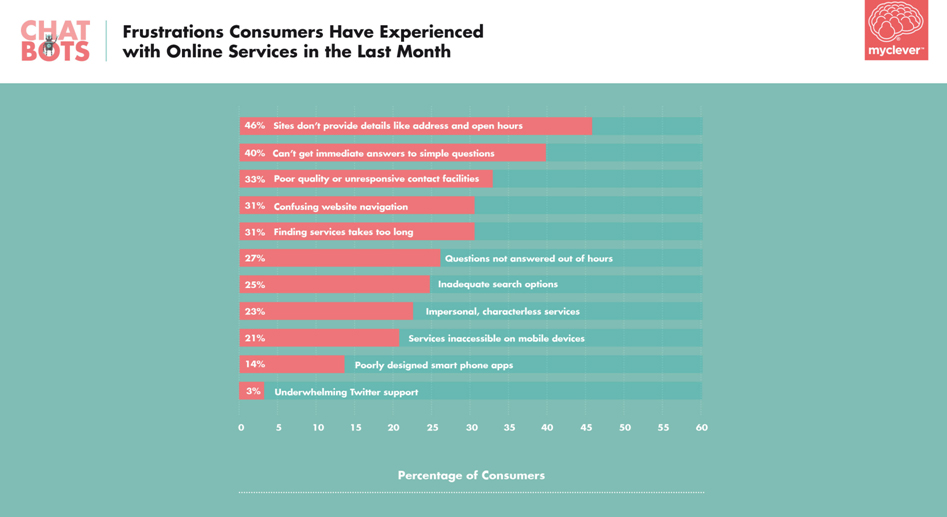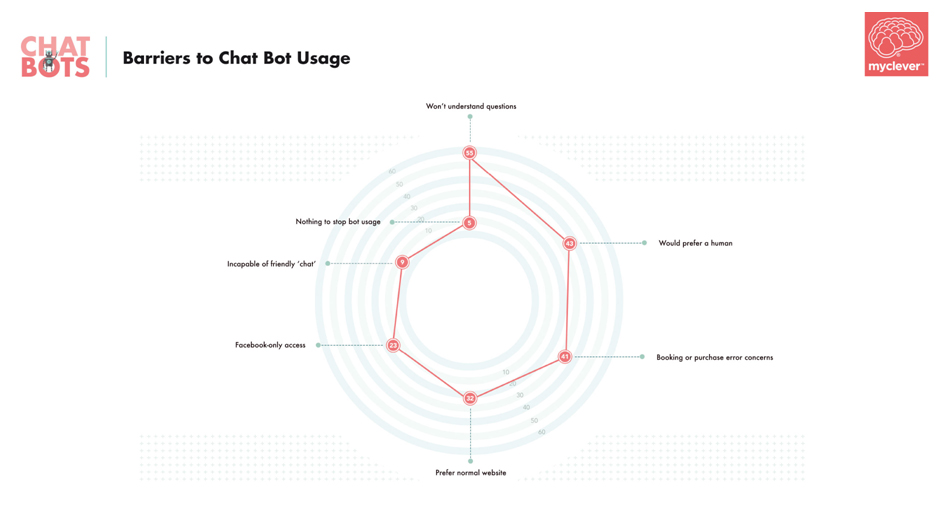
Chatbots vs Humans: What kind of attention is best?
Chatbots are becoming more and more popular, but that doesn’t mean that they’re the best option. Can a bot replace the experience of interacting with an agent? The answer is very simple if we make it personal: Do you prefer speaking to an automated telephone or do you ask to speak with an agent?
What exactly is a Chatbot?
It’s easy to explain but extraordinarily complicated to develop. Chatbots are a conversational software that uses Artificial Intelligence to simulate a human interaction with a “real” user. Thanks to their ability to shape their rhetoric and behavior based on what they learn from users, chatbots can offer simple responses to direct questions.
Reasons why I prefer an agent over a chatbot
Here’s the thing, customer service isn’t currently 100% within the reach of machines. They get more and more complex and Artificial Intelligence is perfected year after year, but the human component has nuances that are difficutl to portray artificially.
I was reading an interesting study from the English agency, My Clever, where they face some pretty enthusiastic chatbos with Apps, and I found two slides I thought were pretty revealing. The first is this one below that details the reasons why online customers have frustrating experiences:
The first reason is that sites do not provide clear contact information, an address or business hours. Do we need a bot for this? Here, the only thing left to do is criticize ourselves and try to solve the problem; it’s a point of frustration that can be avoided. The second reason is not being able to get immediate answers to simple questions. Here the easiest thing would be to say that these probems can be solved by asking the right question about the right content, but, being objective, we know that it’s practically impossible to foresee every user’s questions, meaning a customer service option seems like a good idea.
Anyway, returning to subjectivity, what is a simple question? Because, what seems obvious to one person may be unclear to someone else. Here, a machine faces two possible situations where it can make a mistake:
-
The question is simple but expressing it isn’t: there are as many ways to ask the question as there are people.
If someone doent communicate in a way that the chatbot can semantically interpret, use of jargon, bad spelling or diction, it won’t be able to answer and instead will go into a loop of “I don’t understand, can you repeat the question?” This is as frustrating as it is uncomfortable for the user.
- The question is easy… for the user: Of course, it seems logical for the user to ask if the bearings for the Pegaso IR306 truck will arrive before Maundy Thursday in the Boonies, or something to that effect.
In these “simple questions” I can see possible ways the bot might get lost. It’s actually a pretty complicated question, both in the way it was formed and by the content itself, that an agent would be able to solve easily, but the AI software has a lot harder time with. For the user, it might seem like the easiest thing in the world.
We’ll close the top 3 online frustrations with this one: “Poor contact system quality This isn’t necessarily a point for chatbots either, the feeling of human contact offers a very high perceived quality for the user. Fine, the robot is there 24/7, but when you have a problem that goes beyond rescheduling a dentist appointment, the fact that you can engage in a real conversation is a plus.
And this takes us directly to the second slide I wanted to highlight:
When users are asked what their preferred channels are from 0 to 100 depending on the benefits they offer, we unequivocally see that the user seeks contact with an agent. The preferred channel is face-to-face, over bots, then email, livechats, and telephone.
The conclusion is simple, it seems like we should look for a comprehensive solution that encompasses all the main channels, but does one exist? Fortunately yes, there is some software like Oct8ne on the market that enables video assistance through a coviewing system but also integrates the phone and chat.
Why chatbots aren’t always ideal for brands
You have to understand each company’s needs. Just because a piece of technology gets popular, doesn’t mean that it fits well with your business or your goals. I’ll give a slightly extreme example just so you understand what I mean: If you have a store that focuses on adding value in the artisanal or even the ecological markets, do you think it makes sense to attend your public using automated technology?
Another area where an agent is much more valuable than a machine is when dealing with context. Yes, the bot has its algorithm, it handles product histories, and it is predictive and can resolve a complaint or close a simple sale, but it does not have the psychology or the sales pitch of a professional that knows the business, which makes the agent much more persuasive.
Last but not least is the fact that technology fails but isn’t aware of it. Just remember Microsoft’s huge fail with their experimental conversation assistant, Tay, that was an attempt at a chatbot to create a relationship between Twitter users. What was the problem? Precisely that twitterers used the bot’s greatest quality, learning from feedback, to deliberately convert it into a racist and sexist in less than 24 hours. Needless to say, they ended up closing the public experiment as the Twitter account was protected.
Why chatbots aren’t always ideal for users
There are sectors, situations, and certain purchases that users don’t want to close through a machine however highly evolved it may be:
-
Expensive purchases: we still need reinforcement on snap decisions, actually, societal approval continues to be very effective.
-
Paying an invoice: Yeah, yeah, machines are useful for consultations but we want to make sure the electric bill is paid and they’re not going to charge us twice or cut off our service. For these things, we trust real people.
-
When you don’t know exactly what you’re looking for: An agent can answer questions as well as provide inspiration; we can tell them a product we have in mind and they can make a recommendation.
-
If the question we want to ask is complex, technical, or in a field we’re not familiar with. For example, the average user dealing with an Internet service issue.
Curbing bot usage
To end this post, I’d like to go back to the report done by My Clever one last time. There’s a pretty revealing graph about the deterrents that users find regarding bots.
I don’t think there’s much more of a question. We’re worried that bots don’t understand our questions, we simply prefer a person and are distrusting of possible mistakes that might leave us “sold” with a reservation or a purchase we didn’t want.













